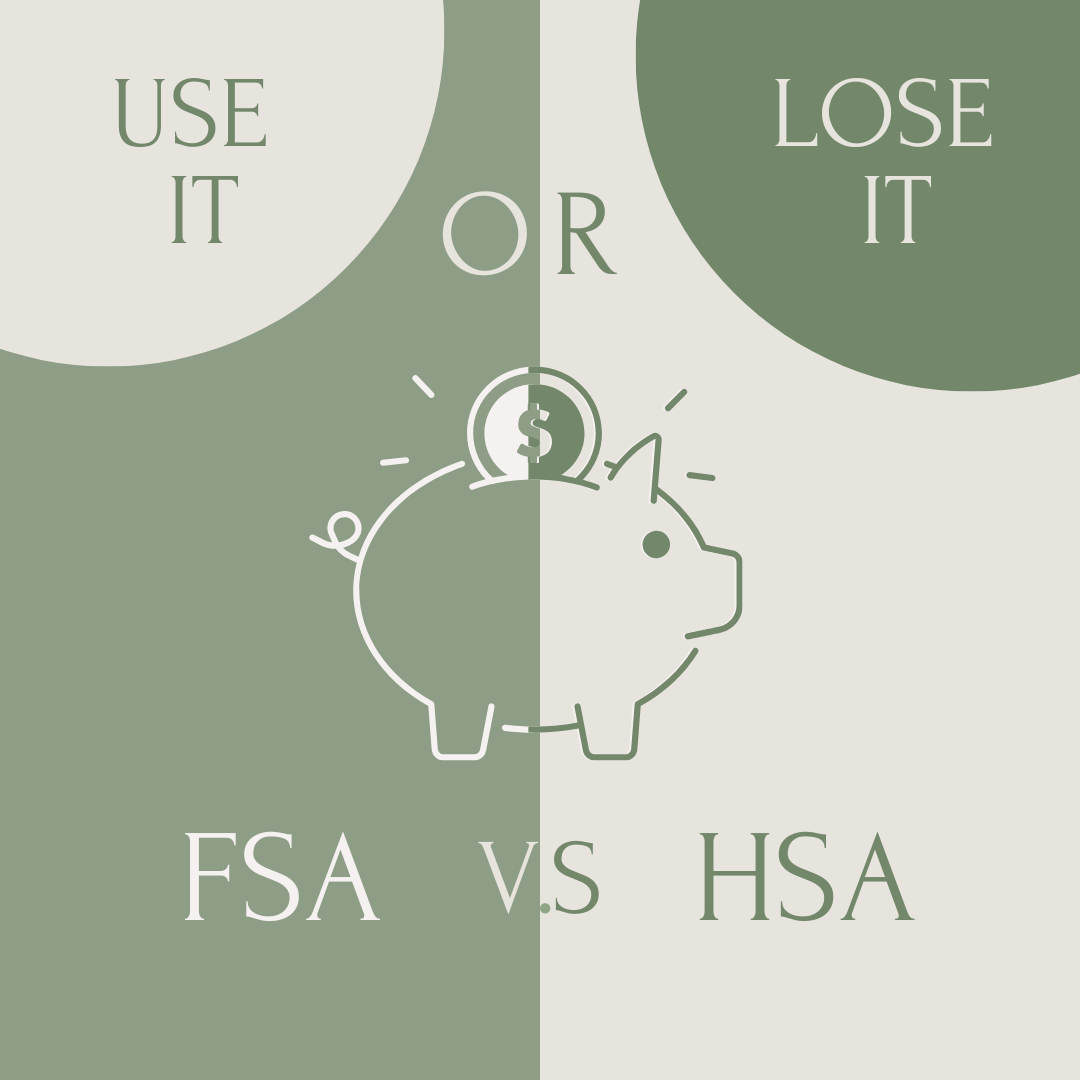
As the year draws to a close, it’s important to take a close look at your Flexible Spending Account (FSA) and Health Savings Account (HSA) balances. These accounts offer significant tax benefits, but there are also important deadlines to keep in mind. One of the most critical dates is December 31, when the use-it-or-lose-it rule for FSAs kicks in. If you have an FSA, you’ll need to use the funds before the end of the year—or risk losing them. However, HSAs have more flexibility. Let’s break down how these accounts work, the benefits they offer, and what you need to do before December 31 to utilize your benefits at our office.
What is an FSA?
A Flexible Spending Account (FSA) is a tax-advantaged account that allows employees to set aside pre-tax dollars to pay for qualified medical expenses, including copays, prescriptions, and over-the-counter medications. FSAs are often offered as part of an employer benefits package, and they can be used for a variety of healthcare-related costs.
Key Benefits of FSAs:
- Tax Savings: Contributions to an FSA are made with pre-tax dollars, which means you reduce your taxable income for the year.
- Wide Range of Eligible Expenses: FSAs can be used for medical, dental, and vision expenses, as well as some over-the-counter products.
- Employer Contributions: Some employers also contribute to your FSA, helping you save even more.
The Use-It-Or-Lose-It Rule:
One of the biggest downsides to an FSA is the use-it-or-lose-it rule. This means that any funds left in your account at the end of the plan year (usually December 31) are forfeited. Some employers may offer a short grace period into the new year, or allow you to roll over a small portion of your balance, but it’s best to spend the funds before December 31 to avoid losing them.
Deadline Alert: Make sure to use your FSA funds by December 31, unless your employer provides an extended deadline.
What is an HSA?
A Health Savings Account (HSA) is another tax-advantaged account, but it works a little differently from an FSA. HSAs are available to individuals who are enrolled in high-deductible health plans (HDHPs). The key benefit of an HSA is that you can contribute tax-free dollars to the account, use them to pay for qualified medical expenses, and, unlike an FSA, any unused funds roll over year to year.
Key Benefits of HSAs:
- Triple Tax Advantage: Contributions are tax-deductible, the funds grow tax-free, and withdrawals for qualified medical expenses are also tax-free.
- Carry Over Funds: There’s no “use-it-or-lose-it” rule with HSAs. Any unused balance rolls over into the next year, so you can keep building your savings.
- Retirement Savings: After age 65, you can use HSA funds for non-medical expenses without a penalty (though you will pay taxes on those withdrawals).
How to Maximize Your FSA and HSA in Our Office Before the End of the Year
1. Review Your Balances: Log into your FSA and HSA accounts to see how much you’ve contributed and how much you have remaining.
2. Spend Your FSA Funds: If you have a remaining FSA balance, use it before December 31. You can use your FSA balance for the following listed services or products we carry at our office:
Comprehensive Eye Exams
Contact Lens Fittings
Dry Eye Exams
Dry Eye treatments
Products like eye drops, warm compresses, supplements, glasses cloth, and glass cleaners.
Annual supply of prescription contact lenses from the office
Second pair of prescription glasses or a fun pair of sunglasses from our office.
3. Consider Carrying Over HSA Funds: If you have an HSA, you don’t need to worry about the year-end deadline as the funds carry over. However, it’s still a good time to review your contributions and consider if you want to increase your contributions before the year ends to take full advantage of the tax benefits.
4. Keep Receipts: For both FSAs and HSAs, it’s essential to keep all receipts for medical expenses, as you may need to provide documentation for reimbursements or tax purposes.
Final Thoughts
FSAs and HSAs are powerful tools for managing your healthcare expenses, but it’s important to be mindful of the deadlines and rules associated with each account. With the December 31 deadline quickly approaching for FSAs, now is the time to use your remaining funds before they disappear. For HSAs, the flexibility to carry over your funds into the next year makes them an even more valuable long-term savings tool for healthcare costs.
Call us today to learn how to maximize these benefits!
Take action now to ensure you’re maximizing your healthcare savings and avoiding any missed opportunities. Don’t let your hard-earned contributions go to waste!








